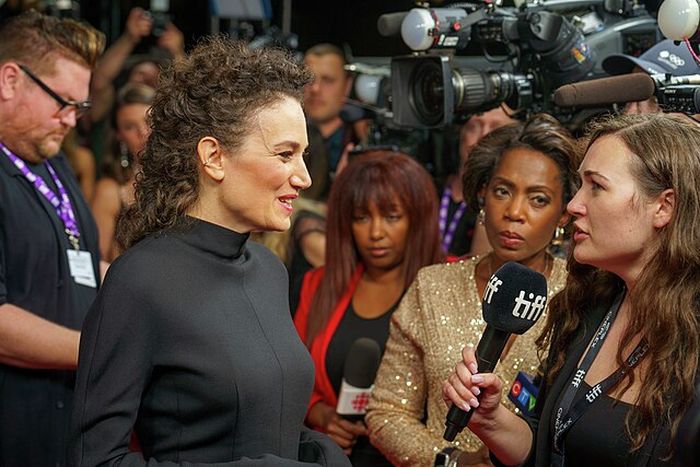The Wuthering Heights casting controversy isn’t about Robbie and Elordi — it’s about Emerald Fennell
Wuthering Heights casting choices are dividing the internet for no good reason, argues Daisy Simpson

Helen Mirren once said ‘All you have to do is look like crap on film and everyone thinks you’re a brilliant actress. Actually, all you’ve done is look like crap’. It’s a bold statement, the kind you can only expect from a seasoned professional who’s been around the image-conscious Hollywood block a few times. But although Mirren is nearly eighty, her proclamation is no less resonant nowadays than it was during her days as a young actress.
The Gosford Park star would probably catch significant flack for saying such things in the current climate — ‘pretty privilege’ and the perks it bestows have the Internet in a chokehold, and a new actress is nailed for perceived ‘ungratefulness’ seemingly every five minutes. But given the nature of social media, where nuance is a persecuted fugitive and no one who is rich or attractive can ever be a victim, few seem to have given much thought to the very real and persistent downsides of so-called ‘pretty privilege’. One of these, of course, is the assumption that certain actors are too glamorous for gritty, getting-down-in-the-dirt style roles, and the latest victims appear to be Margot Robbie and Jacob Elordi, who are slated for Emerald Fennell’s upcoming adaptation of Wuthering Heights.
“All you have to do is look like crap on film and everyone thinks you’re a brilliant actress.”
A BBC article hyperbolically entitled ’Wuthering Heights: Hollywood’s worst casting decisions’ (surely that title belongs to James Corden in Cats?) begins with a summary of the novel that reads like a thirteen-year-old’s panicked last-minute copy-and-paste from Wikipedia: ‘Catherine is a teenager who lives on a farm in England in the late-1700s. Heathcliff is a dark-skinned foundling of the same age’. The treatment of Heathcliff’s race as his defining feature in the second sentence comes across as somewhat problematic, and what the rest of this article impeccably (if inadvertently) encapsulates is the problem with movie releases in the Internet epoch, when social media vultures seize on a singular piece of casting information like a freshly killed impala and tear it apart with frightening zeal — without actually having seen the film. The professed motivation behind the freshest feast is that Jacob Elordi and Margot Robbie are considered too polished and beautiful to play Emily Brontë’s tortured, gurning, windswept youths. The author expresses this by describing them as ‘impossibly good-looking’, but then fumbles around for something to back up this superficial argument, going on tangents about so-called ‘iPhone face’ (a phenomenon whereby certain actors’ faces look too modern or ‘Instagrammable’ for period dramas) and Heathcliff’s ethnicity (equating the absence of a black actor in the ambiguous role of a traveller to Laurence Olivier playing Othello in blackface). But the beauty argument is an empty critique, as it is patently untrue that glamorous actors cannot play dishevelled or unattractive characters. Were that the case, millions of hair and makeup artists would be out of work.
Fennell’s popular first film, Promising Young Woman, is a feminine inversion of the classic revenge thriller — everything is designed in delicate, girlish pastel shades, and sweet-faced 2000s darlings like Adam Brody play would-be rapists in order to subvert our expectations of ‘nice guys’. This film has a clear message — society cossets ‘promising young men’ who commit rape and sexual assault, not wanting to ‘ruin their lives’, but disregard the promising young women hurt by their actions. And despite the main theme of the film being sexual violence, it’s deliberately, profoundly unsexy; the scene in which Carey Mulligan dresses up in a stripper’s nurse outfit to get revenge at a bachelor party is just uncomfortable. But the follow-up film Saltburn has sparked much more debate (‘there’s actually nothing weird about him going down on Venetia while she’s menstruating…’) Not only is it about the British upper-classes and directed by a rich Oxford graduate, it doesn’t roundly condemn the Catton family as monsters. Worse — Saltburn is unapologetically sensualist, revelling in bodily substances as much as possible in a post-pandemic world. The internet is brimming with violent and degrading pornography, yet a naked dance and bathtub fornication send cinemagoers hunting for pearls to clutch.
“social media vultures seize on a singular piece of casting information like a freshly killed impala and tear it apart with frightening zeal”
There is not a cookie-cutter, For Dummies-style message about the aristocracy to be taken from Saltburn, and this has been anathema to critics. Reviews label it ‘All Style, No Substance’, ‘Vibes and Empty Provocations’, ‘a confusing, boring disaster’, ‘Highsmith without the wit’ and ‘a car crash of a film’ — and so much of the criticism seems to revolve around what it says or doesn’t say about social class, whether or not the director actually intended for that to be the point. Lush cinematography, witty writing and excellent performances from gorgeous, charismatic actors are no longer enough for a film to be considered ‘good’ — and the Internet, on hearing of the Wuthering Heights casting choices, wants to make sure Fennell damn well remembers it.
 News / CUP announces funding scheme for under-represented academics19 December 2025
News / CUP announces funding scheme for under-represented academics19 December 2025 News / Cambridge welcomes UK rejoining the Erasmus scheme20 December 2025
News / Cambridge welcomes UK rejoining the Erasmus scheme20 December 2025 News / SU reluctantly registers controversial women’s soc18 December 2025
News / SU reluctantly registers controversial women’s soc18 December 2025 Film & TV / Timothée Chalamet and the era-fication of film marketing21 December 2025
Film & TV / Timothée Chalamet and the era-fication of film marketing21 December 2025 News / News in Brief: humanoid chatbots, holiday specials, and harmonious scholarships21 December 2025
News / News in Brief: humanoid chatbots, holiday specials, and harmonious scholarships21 December 2025









